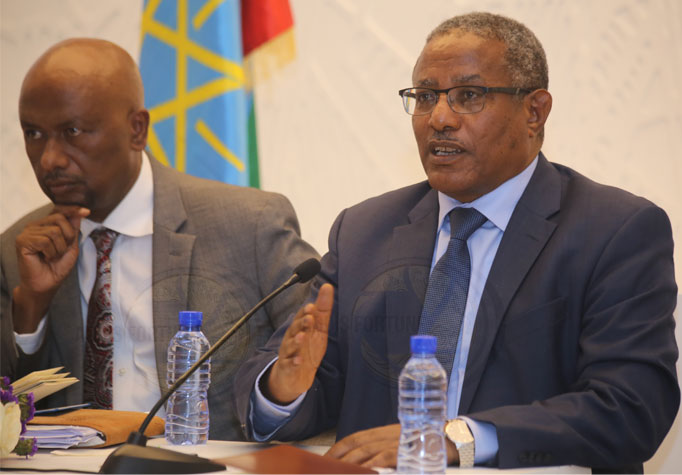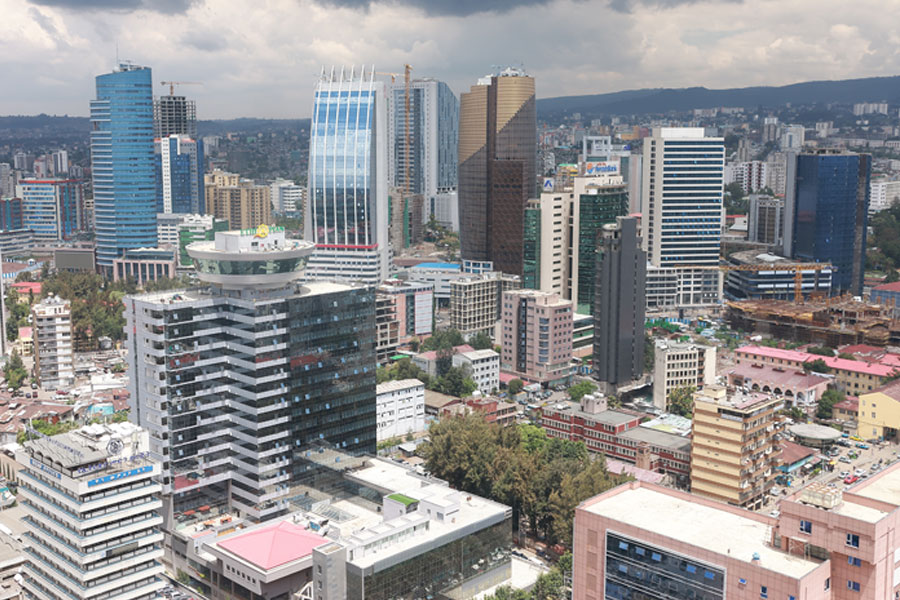
Viewpoints | Dec 25,2018
Nov 9 , 2019
By Eden Sahle
An occasional outburst of respect, compassion and unity from society and its leaders is not enough to make citizens uphold a moral and dignified value to all humanity. Nor is starting ethical education at the higher education level after people have already formed their personalities and characters.
Ethical education should start early in childhood allowing people to have the discipline and consistency to reinforce the right principles and respectful values. Respecting people and their boundaries should be at the heart of our national consciousness and curricula.
This can create a sense of value to human lives and respect for individuals. It can teach the public the benefit of learning to value and respect others irrespective of their opinions and background.
A culture of respect, compassion, equality and unity offers enormous benefit to societies. Reverence for people, unity and collaboration are values in which Ethiopia is falling short. Human beings are all equal in many ways but also different. Diversity not only needs to be celebrated but also honoured. Respecting people begins by respecting ourselves and our natural moral and human values. Those who are unkind and disrespectful to others disrespect themselves the most.
Ethiopia is a melting pot of diverse cultures and backgrounds with people who share common values and principles relating more with one another than they differ. The country’s values have been overshadowed by a distorted mindset, which has conditioned people to judge others based on their opinions and backgrounds instead of their humanity.
Such a lack of value to human life is severely affecting the way people treat each other. Negative mindsets are flourishing, demeaning people, and depriving them of their natural human rights.
Living in harmony while having political differences is possible if people are civilised enough to allow everyone to have an opinion. Being compassionate and working together for a better future is the way of the enlightened. Equality can be achieved just by holding everyone to the same standard and by bringing all women and men to work together for a better world. The bizarre abuse that people are routinely subjected to can only be eliminated through collaboration and implementation of the rule of law.
Ethiopia’s peaceful coexistence lies in realising everyone enjoys naturally equal status and values irrespective of who they are and where they come from. It is about judging a person based on their merit and not viewing them as inferior or superior purely based on their gender, political views and religion.
Publicly preaching equal rights to everyone will not be enough. It must be manifested and strictly enforced in schools, families and institutions for it to bring change. The abusive mentality that exists in many minds must be controlled and made subject to justice.
Violence should never be overlooked. When the government takes on its responsibility effectively and enforces the rule of law, others will be receptive.
The government can do so much more to lead the public by example and help foster collaboration, respect for the rule of law and justice to prevail at all times. Leadership is less about power than leading people to a better path.
When the people demand their rights, it does not mean they are opposing the government. It means there is a problem that needs its immediate attention.
The solution is to work and align with the public to drive the improvement of the country collectively.
Like many Africans, we are not new to unsatisfactory leadership that brings so much frustration to the public. Often, leaders in the continent are found undermining the capacity, skill, potential and positive attitude of the public.
It is utterly disturbing to see how lives in Africa are less valued than elsewhere. It should be evident by now that revenge brings nothing beneficial. No one can make us feel inferior without our consent. Maybe this concept should be taught in all levels to educate the Ethiopian people that nothing can take away their value unless they allow it.
No matter what, we always get to select how we see, react and value things. Society should not open itself to inhumane behaviour. That is barbaric. We need to begin to think that nothing affects us until we let it impact us negatively. We need to stop the enabling role of abuse and allow justice to prevail.
Changing our social paradigm will help us change our unimaginable poverty at a national level. An eye for an eye will only continue to hurt us for generations to come.
PUBLISHED ON
Nov 09,2019 [ VOL
20 , NO
1019]

Viewpoints | Dec 25,2018

Exclusive Interviews | Jan 05,2020

Fortune News | Mar 03,2020

My Opinion | Mar 20,2021

Fortune News | May 09,2020

Fortune News | Mar 30,2024

Radar | Aug 16,2020

Commentaries | Jul 13,2019

Viewpoints | Aug 03,2019

Radar | Dec 19,2020

My Opinion | 131770 Views | Aug 14,2021

My Opinion | 128154 Views | Aug 21,2021

My Opinion | 126099 Views | Sep 10,2021

My Opinion | 123721 Views | Aug 07,2021

Dec 22 , 2024 . By TIZITA SHEWAFERAW
Charged with transforming colossal state-owned enterprises into modern and competitiv...

Aug 18 , 2024 . By AKSAH ITALO
Although predictable Yonas Zerihun's job in the ride-hailing service is not immune to...

Jul 28 , 2024 . By TIZITA SHEWAFERAW
Unhabitual, perhaps too many, Samuel Gebreyohannes, 38, used to occasionally enjoy a couple of beers at breakfast. However, he recently swit...

Jul 13 , 2024 . By AKSAH ITALO
Investors who rely on tractors, trucks, and field vehicles for commuting, transporting commodities, and f...

Jul 5 , 2025
Six years ago, Ethiopia was the darling of international liberal commentators. A year...

Jun 28 , 2025
Meseret Damtie, the assertive auditor general, has never been shy about naming names...

Jun 21 , 2025
A well-worn adage says, “Budget is not destiny, but it is direction.” Examining t...

Jun 14 , 2025
Yet again, the Horn of Africa is bracing for trouble. A region already frayed by wars...

Jul 6 , 2025 . By BEZAWIT HULUAGER
The federal legislature gave Prime Minister Abiy Ahmed (PhD) what he wanted: a 1.9 tr...

Jul 6 , 2025 . By YITBAREK GETACHEW
In a city rising skyward at breakneck speed, a reckoning has arrived. Authorities in...

Jul 6 , 2025 . By NAHOM AYELE
A landmark directive from the Ministry of Finance signals a paradigm shift in the cou...

Jul 6 , 2025 . By NAHOM AYELE
Awash Bank has announced plans to establish a dedicated investment banking subsidiary...